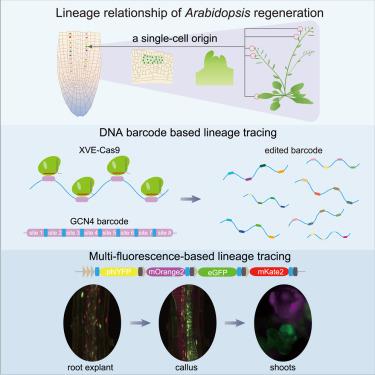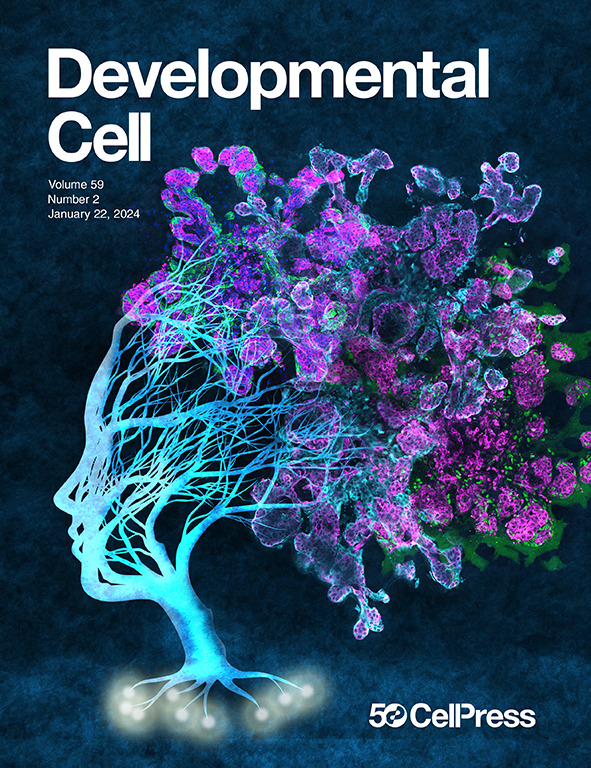Development of an inducible DNA barcoding system to understand lineage changes in Arabidopsis regeneration
IF 10.7
1区 生物学
Q1 CELL BIOLOGY
引用次数: 0
Abstract
Plants demonstrate a high degree of developmental plasticity, capable of regenerating entire individuals from detached somatic tissues—a regenerative phenomenon rarely observed in metazoa. Consequently, elucidating the lineage relationship between somatic founder cells and descendant cells in regenerated plant organs has long been a pursuit. In this study, we developed and optimized both DNA barcode- and multi-fluorescence-based cell-lineage tracing toolsets, employing an inducible method to mark individual cells in Arabidopsis donor somatic tissues at the onset of regeneration. Utilizing these complementary methods, we scrutinized cell identities at the single-cell level and presented compelling evidence that all cells in the regenerated Arabidopsis plants, irrespective of their organ types, originated from a single progenitor cell in the donor somatic tissue. Our discovery suggests a single-cell passage directing the transition from multicellular donor tissue to regenerated plants, thereby creating opportunities for cell-cell competition during plant regeneration—a strategy for maximizing survival.

开发可诱导的 DNA 条形码系统,了解拟南芥再生过程中的品系变化
植物具有高度的发育可塑性,能够从分离的体细胞组织再生出完整的个体--这种再生现象在中生代动物中很少见。因此,阐明再生植物器官中体细胞创始细胞和后代细胞之间的世系关系一直是人们追求的目标。在本研究中,我们开发并优化了基于 DNA 条形码和多重荧光的细胞系追踪工具集,采用诱导方法在再生开始时标记拟南芥供体体细胞组织中的单个细胞。利用这些互补方法,我们在单细胞水平上仔细研究了细胞特性,并提出了令人信服的证据,证明再生拟南芥植株中的所有细胞,无论其器官类型如何,都源自供体体细胞中的单个祖细胞。我们的发现表明,单细胞通道引导着从多细胞供体组织到再生植物的过渡,从而为植物再生过程中的细胞竞争创造了机会--这是一种最大限度提高存活率的策略。
本文章由计算机程序翻译,如有差异,请以英文原文为准。
求助全文
约1分钟内获得全文
求助全文
来源期刊

Developmental cell
生物-发育生物学
CiteScore
18.90
自引率
1.70%
发文量
203
审稿时长
3-6 weeks
期刊介绍:
Developmental Cell, established in 2001, is a comprehensive journal that explores a wide range of topics in cell and developmental biology. Our publication encompasses work across various disciplines within biology, with a particular emphasis on investigating the intersections between cell biology, developmental biology, and other related fields. Our primary objective is to present research conducted through a cell biological perspective, addressing the essential mechanisms governing cell function, cellular interactions, and responses to the environment. Moreover, we focus on understanding the collective behavior of cells, culminating in the formation of tissues, organs, and whole organisms, while also investigating the consequences of any malfunctions in these intricate processes.
 求助内容:
求助内容: 应助结果提醒方式:
应助结果提醒方式:


